The content of the article
Castration surgery is performed using general anesthesia. For this reason, cat owners are interested in how long the pet will recover after such an operation.
You can never say for sure when exactly the action of anesthesia will end. This is influenced by many factors, which include the individual characteristics of the animal, its age and general health. The older the individual, the longer the effect of anesthesia. Therefore, the castration operation is preferable to do in the first years of the cat's life. Often this time is from 2 to 12 hours.
Young cats with active temperament begin to regain consciousness in 2-3 hours. Seniors can be under the influence of anesthesia for a long time. On average, this time is approximately 5 hours. In the event that the cat does not recover for a sufficiently long time, more than 8 hours - it is worth contacting the veterinarian for advice. For anesthesia of representatives of the cat family, standard anesthesia is not used, but a drug is used, under the influence of which they lose their sensitivity, but their eyes are open.
What does a cat look like under anesthesia?
Some owners are very nervous when their pet is under anesthesia. This is quite natural, because the animal is in an unusual state for him.
Signs of anesthesia:
- Frequent and intermittent breathing.
- Feet and tail can move.
- If you shine in the eyes with a light source - there is a narrowing of the pupils.
Attacks of vomiting may be present, lack of appetite and the presence of seizures. After a certain amount of time after surgery, the cat may be somewhat weakened, its movements may have less coordination.
After castration, complications happen quite infrequently. This surgery in veterinary medicine is considered simple.
Cat behavior after anesthesia
The way a pet behaves while departing from anesthesia is very individual. Nevertheless, during the first days the cat should stand up normally. Very often there is a lack of appetite, this should not be alarming, after a few more hours it will recover.
In general, the animal may behave somewhat unusual. The cat can report its unusual state with meowing, it may have vomiting and confusion.
How to care for a pet after castration?
In the first few minutes, when the cat wakes up, he may experience involuntary urination. Therefore, it is important to lay a special absorbent diaper or any other bedding.
An animal under anesthesia should be in a lateral position, preferably on the floor. You need to cover it well with a blanket and put a heating pad or a bottle of warm water next to it. This is necessary for the reason that while under anesthesia the body temperature drops.Still the animal needs to close its eyes to protect them from drying out. The problem can be solved by using eye drops. Which can be used - you should ask your veterinarian.
Within 4-6 days, you need to treat the place of surgical intervention with the help of brilliant green, Chlorhexidine or another antiseptic, which the veterinarian will advise. Cats usually lick their wounds on their own. But in this case, this is not entirely desirable. To avoid this, you can use a special collar, which is removed only during meals. The animal may begin to rub a wound on the surface of the floor or furniture. This is extremely undesirable and can be dangerous in the first few days. To avoid this, it is necessary to use a diaper, having previously cut a hole in it for the tail. This will save the place of surgical intervention from combing and infection.
What should be alarming?
- Urine with blood.
- Lack of appetite for more than 3 days.
- Long sleep, more than 24 hours.
- Lack of pupil response to a light source.
In the first few days, the usual filler needs to be replaced with toilet paper. This will prevent damage to the postoperative healing wound. In addition, this will make it possible to notice the release of blood in case of bleeding and during the reaction. For some time after the operation, the animal will have difficulty walking, staggering. For this reason, it is worth paying attention to him in the first few days. Young cats recover very quickly. Elderly individuals more often than others suffer from complications, but they do not always appear.
Pets after surgery require more attention and care. But it happens when cats begin to ignore their owners, as if resenting them. In fact, the animal does not understand what happened to it, because it does not understand the anatomy. But they understand that the owner independently took them to some place, after which their health worsened. Some time after recovery, the cat again begins to trust the owner.
Nutrition after castration

Castrated animals need to adjust their diet. An important condition is the exclusion of fish from it. After such operations, some cats begin to get fat quickly. The presence of excess weight is as dangerous for them as it is for people, it can cause the development of diseases of the cardiovascular system and hormonal imbalance. For this reason, standard feed should be replaced with special feed.
Those who feed cats home-made food need to reduce the amount of foods that contain calcium, as well as carbohydrates. At the same time, the animal's diet should have a sufficient amount of lean meats, dairy products, cereals and vegetables.
Some are of the opinion that castration provokes the development of urolithiasis. However, these ailments are a consequence of malnutrition and dehydration.
How does the character of castrated cats change?
Not all owners decide on such procedures. However, the operation has many positive consequences. It not only prevents changes in behavior during periods of sexual activity, but also is the prevention of many unpleasant diseases that can pose a threat to the life of the pet.
Surgical intervention to remove the cat's testicles in practice helps to improve its character. When he ceases to be interested in the opposite sex, begins to pay more attention to his masters, becomes more gentle and complaisant. He begins to play more and communicate with people.
For some individuals that are aggressive, this is the only way to get rid of it. Many do not dare to castrate the cat, because there is an assumption that this makes him apathetic and lethargic.But the reason for these changes is weight gain due to malnutrition.
Cats, having gone through the castration procedure, become more concentrated and better trained. They do not seek to escape from home, which prevents accidents and infection with infectious diseases. In relation to their relatives, castratics do not change their behavior, but no longer show aggression towards them. Therefore, this procedure is recommended to be carried out if it is planned to settle another cat in the house.
Many owners do not decide on the procedure, because they are sorry to rid the pet of the joy of communicating with the opposite sex. Moreover, they know little about all the negative aspects of such communication. After all, mating with often homeless or yard cats leads to infection with various diseases, which are often the cause of death of the animal.
In addition, the cat's erratic sex leads to the birth of useless outbred kittens, increasing the number of homeless cats. Cats do not suffer due to lack of sex life and the ability to have offspring. The need for mating for them is a natural instinct. They feel discomfort if they are not satisfied.
Many avoid castration, using different drugs to suppress sexual activity. They are quite effective in such a situation, but contribute to the disruption of the hormonal background. Which, in turn, sooner or later provokes serious health problems in the cat. In addition, with frequent use, they are addictive and simply cease to act.
Positive aspects of the operation
- Missing tags.
- The best socialization.
- Compliance to trainings.
- Lack of aggressiveness towards relatives.
- Reducing the risk of death of a cat from an accident.
- Reducing the risk of contracting dangerous diseases.
- Positive changes in character.
In practice, castration surgery rarely causes complications, and recovery occurs quickly enough. However, this operation must be performed by a qualified doctor. After it, the animal needs additional care for some time. This should take into account the owner, who decided on such a procedure.
Video: what to do after castration?

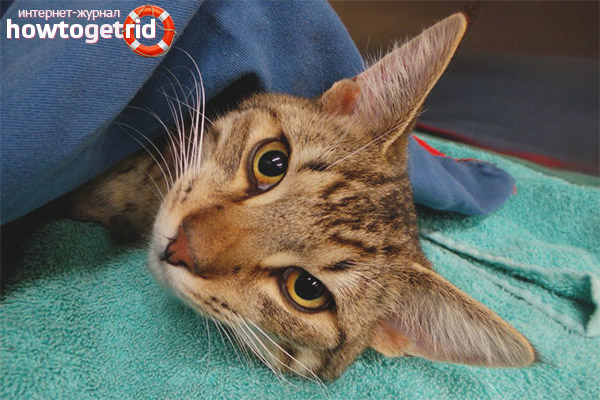
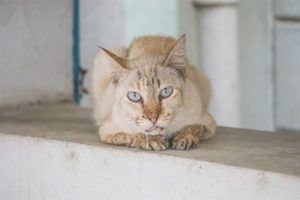
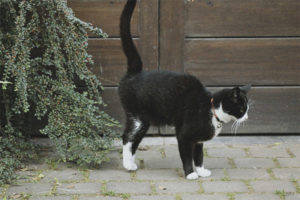
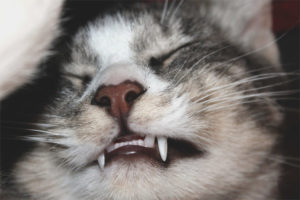
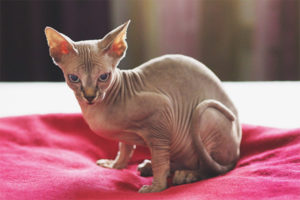
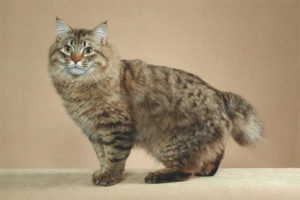
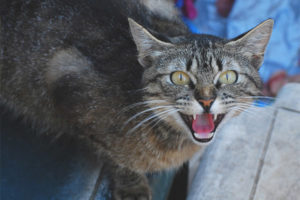
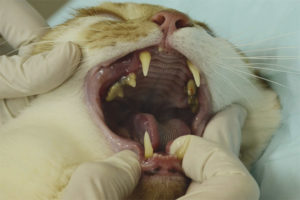
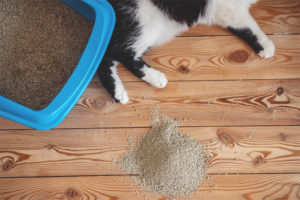
Submit